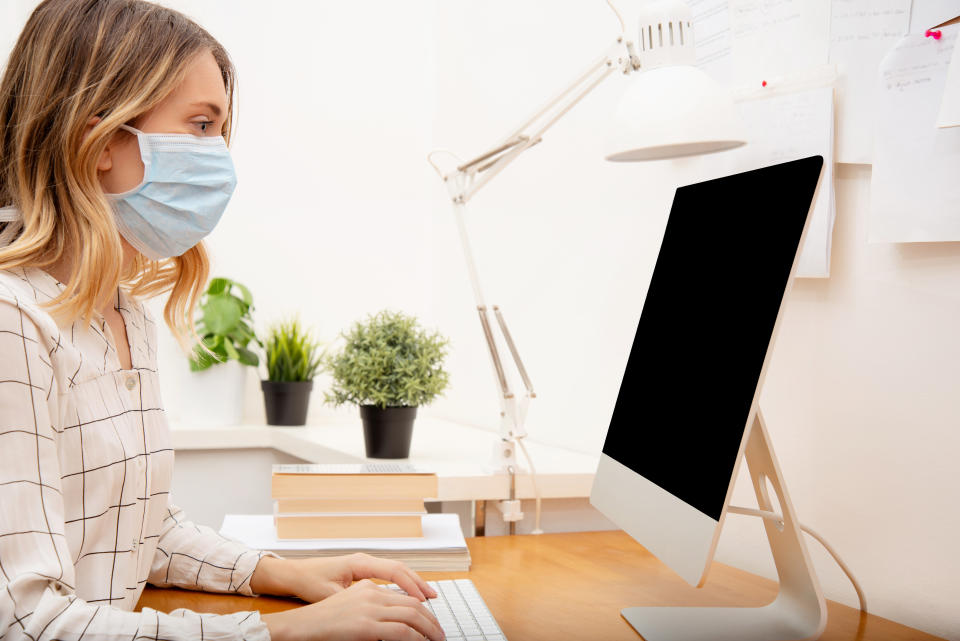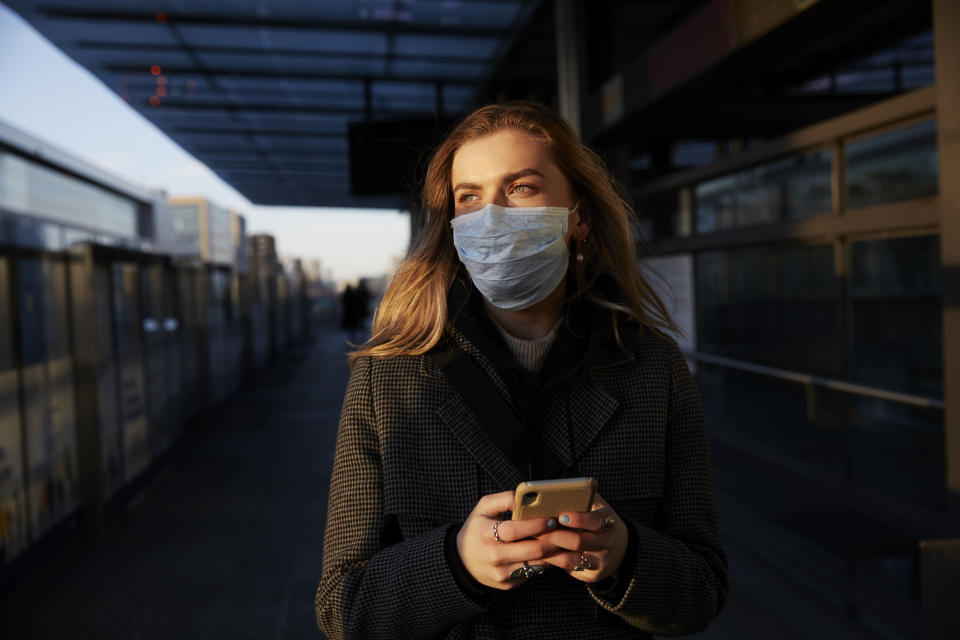Coronavirus: Working from home may have unexpected benefits for foot health

While NHS front-line staff are more taxed than ever, the coronavirus outbreak has forced most of us to adapt to a slower pace of life.
Extreme restrictions mean Britons have to work from home if they can, prompting many to swap their power suits for loungewear.
The lockdown is leaving many feeling anxious, stressed and isolated – however, improved foot health may be an unexpected benefit of spending so much time indoors.

‘Wearing what is comfortable makes a lot of sense’
Setting up office at home may mean British workers are being less active or enduring back pain due to an unsupportive kitchen chair.
Spending all day in our slippers, however, may not be such a bad thing.
Latest coronavirus news, updates and advice
Live: Follow all the latest updates from the UK and around the world
Fact-checker: The number of COVID-19 cases in your local area
Explained: Symptoms, latest advice and how it compares to the flu
“Working from home may give your feet a well-earned rest, particularly for people that have a long commute to work or are on their feet all day,” Dr Ros Miller, consultant orthopaedic foot and ankle surgeon at HCA Healthcare UK, told Yahoo UK.
“Some women prefer to wear high heels to work, however, walking in heels all day puts a lot of stress on the ball of the foot and also causes the Achilles to become tight.
“If this is you, then the break from the shoes you usually wear to work, will be very welcome.”
With meetings going virtual, Dr Miller recommends people opt for comfort – whether that be trainers, slippers or bare feet.
“Most people when working from home don’t think about what they are wearing, or certainly not from the waist down,” she said.
“It is unlikely you will need to show your feet or shoes on any Zoom meeting in the next few weeks, therefore wearing what is comfortable makes a lot of sense.”
At-home workers may notice the niggling pain in the ball or front of their feet starts to ease.
“This is because the foot is allowed to ‘splay’ when you are sitting or standing and not squeezed into shoes that are too tight, narrow or just ill-fitting,” said Dr Miller.
“Painful bunions and rubbing on the top of hammer toes are also lessened by not wearing poorly-fitting shoes.
“Moreover, those who have problems with corns and calluses may see an improvement due to there being no pressure from shoes.”
To keep feet healthy, Dr Miller recommends people take advantage of their daily quota of exercise.
A walk, jog or cycle makes up one of the “very limited purposes” Britons are allowed to leave the house.
“Feet can get very swollen if you spend all day sitting in from of the computer without taking any exercise,” said Dr Miller.
“Even a short walk around the garden if you have one – or around the block – can help to prevent this, by getting the muscles, tendons and ligaments moving.”

What is the coronavirus?
The coronavirus is one of seven strains of a virus class that are known to infect humans.
Others cause everything from the common cold to severe acute respiratory syndrome (Sars), which killed 774 people during its 2002/3 outbreak.
Since the coronavirus outbreak was identified, more than 3.7 million cases have been confirmed worldwide, according to Johns Hopkins University.
Of these cases, over 1.2 million are known to have “recovered”.
Globally, the death toll has exceeded 263,800.
The coronavirus mainly spreads face to face via infected droplets expelled in a cough or sneeze.
There is also evidence it may be transmitted in faeces and survive on surfaces.
Symptoms include fever, cough and slight breathlessness.
Early research suggests the infection is mild in four out of five cases, however, it can trigger a respiratory disease called COVID-19.
The coronavirus has no “set” treatment, with most patients naturally fighting off the infection.
Those requiring hospitalisation are given “supportive care”, like ventilation, while their immune system gets to work.
Officials urge people to ward off the coronavirus by washing their hands regularly and maintaining social distancing.




